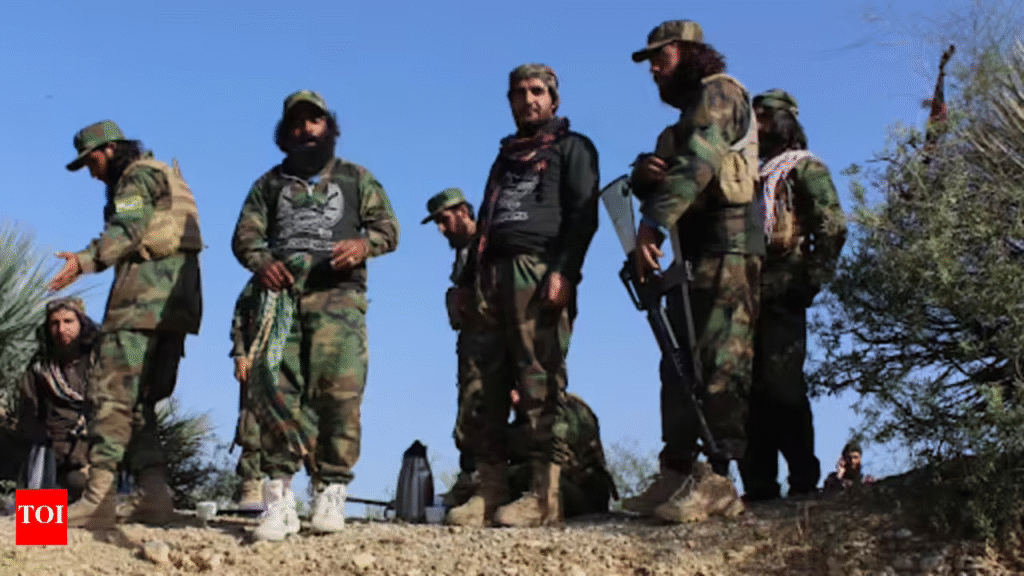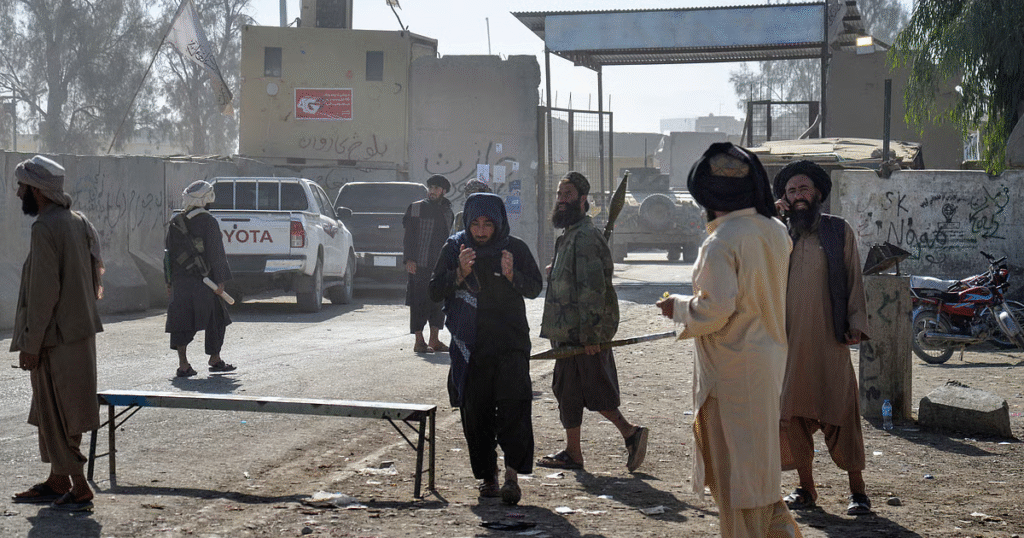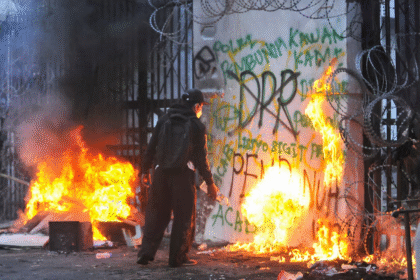Pakistan Launches Powerful Airstrikes on Kabul After Border Clashes — 48-Hour Ceasefire Declared as Dozens Killed in Fierce Fighting
Tensions escalate as Pakistan strikes Afghanistan’s Kabul following deadly border clashes that left dozens dead
Dozens of troops as well as civilians were killed in fresh clashes along the Pakistan-Afghanistan border that erupted Tuesday night, reports said on Wednesday, citing security officials from both sides. The two countries later agreed to a 48-hour ceasefire, which both said was requested by the other side.
Hours after the first reports of the border fighting came in, Pakistan launched airstrikes in Afghanistan’s capital Kabul as well as the Kandahar province, Reuters and AFP news agency reported, quoting officials.

Pakistan’s military said two assaults by Afghanistan’s Taliban on major border posts in the southwest and northwest were repelled, with about 20 Taliban fighters killed in attacks launched near Spin Boldak on the Afghan side of the frontier in southern Kandahar province early on Wednesday, according to AFP news agency.
“Unfortunately the attack was orchestrated through divided villages in the area, with no regard for the civil population,” the report quoted military as saying in a statement. The Pakistan military said about 30 more were likely killed in overnight clashes along its northwest border.
Afghan officials told the news agency that 15 civilians were dead and dozens were injured in the fresh violence on the border between the two countries.
Reuters reported, citing security officials, that fighting between troops and militants in Pakistan’s border district of Orakzai killed six Pakistani paramilitary soldiers and injured as many others.
Taliban government spokesperson Zabihullah Mujahid accused Pakistani forces of “once again” carrying out attacks “with light and heavy weapons” in the district.
This comes days after the two countries clashed last weekend after Afghanistan launched revenge strikes on Pakistan, responding to an attack in Afghani capital Kabul that the country blamed the latter for.
Pakistan said it responded with full force to the “unprovoked” firing in the northwestern Kurram region, killing many Taliban and damaging their forward posts and a tank, a Bloomberg report quoted state-run Pakistan Television as saying on X, citing unidentified security people.

The PTV reported that an important leader of the Pakistani Taliban, a local offshoot of the Afghan Taliban, was killed in the retaliatory attack.
Afghanistan forces killed many “invading” soldiers of Pakistan, while seizing weapons and tanks and capturing their posts, Zabihullah Mujahid of the Taliban regime said in an X post.
Afghanistan launched attacks on Pakistani soldiers along their shared border late Saturday, in what it called “retaliation for air strikes carried out by the Pakistani army on Kabul” on October 7 night.
While Afghanistan claimed its strikes killed 58 Pakistani soldiers, Pakistan said the toll was 23, adding that it managed to kill more than 200 Taliban and affiliated troops in counterfire. The border crossings between Afghanistan and Pakistan were also shut on Sunday, October 12, amid tensions.
Hours after Pakistan Prime Minister Shehbaz Sharif vowed strong response, the Taliban said it has “other ways to handle the situation if Pakistan does not want to engage in dialogue.”
The two fighting was halted after Qatar and Saudi Arabia intervened.
Ali Mohammad Haqmal, spokesman for the local information department in the Spin Boldak region, said 15 civilians were killed by mortar fire in the fresh clashes, according to AFP news agency.
The news agency said the toll was confirmed by Abdul Jan Barak, an official at the Spin Boldak district hospital, who said more than 80 women and children were injured.
In a shocking escalation of cross-border tensions, Pakistan launched airstrikes on Afghanistan’s capital Kabul after deadly clashes erupted along the Durand Line, killing dozens of soldiers and civilians on both sides. The two nations, long marred by distrust and territorial disputes, have now agreed to a 48-hour ceasefire aimed at halting further bloodshed.

According to defense sources, the Pakistan Air Force (PAF) conducted precision strikes early Wednesday morning targeting suspected militant positions allegedly linked to the Tehrik-i-Taliban Pakistan (TTP) near Kabul and surrounding provinces. Explosions were heard across several neighborhoods as jets roared over the Afghan capital, sending residents into panic.
Pakistani officials claimed the air operations were “retaliatory and necessary” after Afghan border troops opened fire on Pakistani checkpoints in the Kurram and Chitral regions earlier this week. The clashes reportedly killed over 25 Pakistani soldiers and injured dozens more.
“We have shown restraint for weeks, but repeated provocations from Afghan forces and TTP sanctuaries left us no choice.”
The border fighting, which erupted near the Torkham and Spin Boldak crossings, intensified over the weekend as both sides traded heavy gunfire, mortar rounds, and drone surveillance. Afghan authorities claim that at least 30 people, including civilians, were killed in the Pakistani strikes, while Islamabad has accused Kabul of harboring militants responsible for attacks inside Pakistan.
Local sources in Kabul reported hospitals overflowing with casualties and widespread fear among residents as the sounds of explosions echoed through the city. Eyewitnesses described the situation as “one of the deadliest flare-ups in years.”
Following intense diplomatic pressure from China, the United States, and the United Nations, both Islamabad and Kabul agreed to a 48-hour ceasefire late Wednesday. The truce, mediated by regional envoys, aims to provide humanitarian access and allow both governments to open communication channels to prevent further escalation.
Afghanistan’s Interim Taliban Government, through its Foreign Ministry, condemned Pakistan’s actions, calling them a “violation of sovereignty and international law.” Pakistan, on the other hand, has demanded that Kabul take “decisive action against anti-Pakistan terror groups” operating from Afghan soil.

Experts warn that the latest confrontation could destabilize the fragile regional balance just as Central Asia faces renewed threats from militant movements. Both countries have struggled to maintain control over porous borders since the Taliban’s return to power in 2021.
“This is not just a border issue — it’s a crisis of mutual mistrust. Without actionable intelligence sharing and political dialogue, peace will remain elusive.”
The United Nations Mission in Afghanistan (UNAMA) has urged both nations to exercise restraint and protect civilians. Meanwhile, Pakistan’s Foreign Office reaffirmed its commitment to regional peace, emphasizing that the ceasefire should be respected to avoid further tragedy.
The coming 48 hours are expected to be critical in determining whether both sides can sustain calm or slip back into conflict. For border communities already caught in the crossfire, hope remains fragile — and peace even more so.








